.
Honoring the Process of Connection with Horses
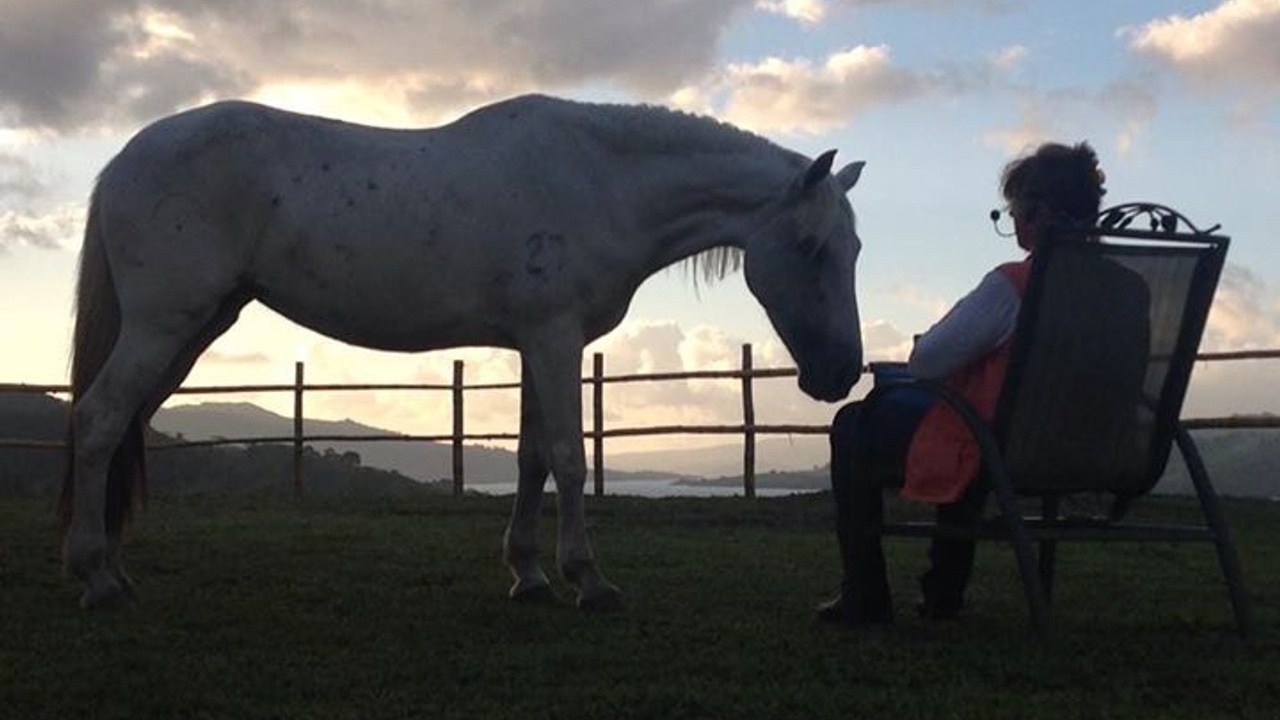
Reflections in Gratitude
“Trust, respect, loyalty, love, dedication, and a need to stay together, we naturally know when to slow down and when to speed up; we know when to pause when to act, when to lead, and when to follow. In this rhythm, great peace is born greater than any peace we find alone.” -Carolyn Resnick
By honoring the process of connection, I found the untapped magic of horses. I also discovered the true nature of the horse, not the horse that has “checked out” by the influence of humans, but rather the horse that is “checked-in” with everything that surrounds him in the present moment, in a calm state of peace. A state that we humans have possibly lost or are hoping to enhance.
From exercising and growing leadership, trust, respect, loyalty, love, and dedication, we find the true nature of horses. In the process, we find our own true nature. From this deeper connection and understanding of horses, our care for all living things is growing, including self-respect and l...
Self Realization Found Through Journal Writing Meditation With Horses
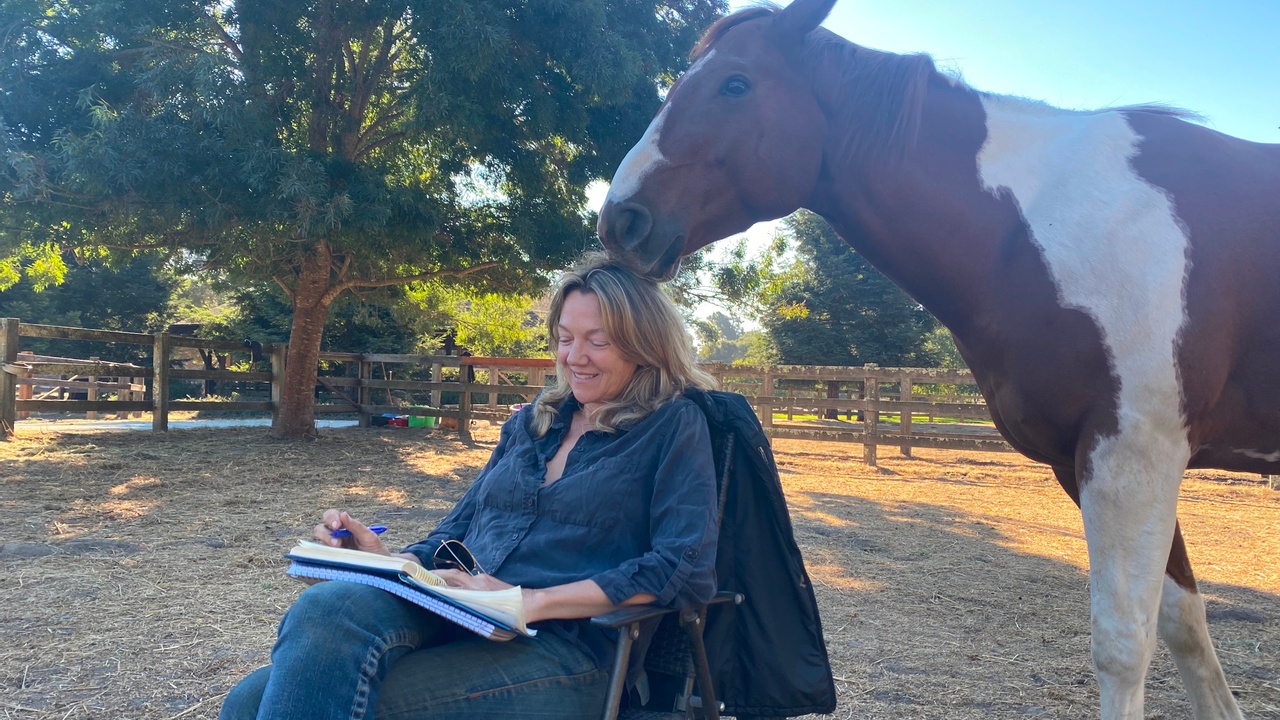
Getting in touch with your true nature by journal writing meditation with horses can create heart and mind coherence for self-realization. You get to know yourself and horses from a deeper level.
Through the years, I have admired people who carry journals with them wherever they go. Journal writers, from friends to famous scientists, artists, and writers, seem to be people that are looking for a deeper meaning to their existence.
I enjoy reading my student’s journals; their journals are a helpful guide for me to know how to support them on their own journey for self-transformation. Journal writing with horses in a meditative state is an excellent way to get to know your true nature to understand the true nature of a horse.
The way I guide others in journal writing is to have them begin with a short meditation. It is important to be in the right state of mind so you can be fully present in the moment to be on the same wavelength with your horse.
Before you put pen to paper...
Principles and Guidelines to Design Your Warm-Up Program (For the Seasoned Horse and Rider)
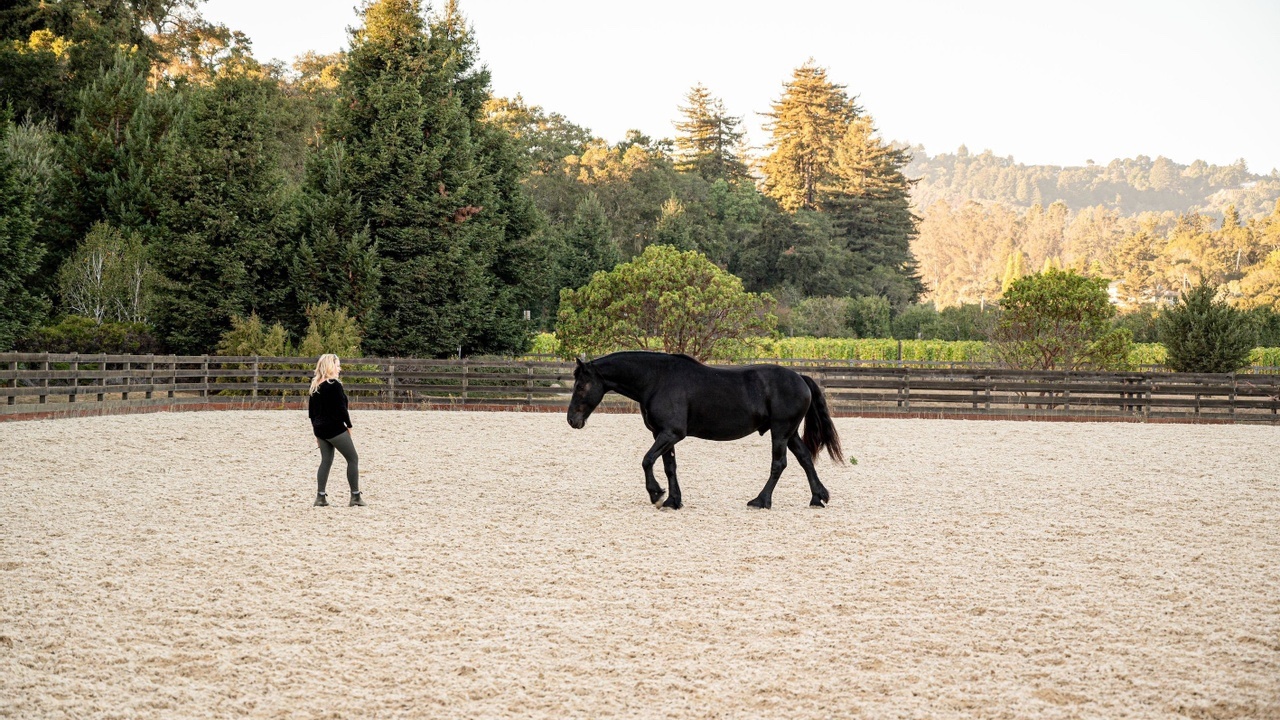
What all conscientious trainers have in common is their ability to bring out the best response in each horse in any given moment. This takes knowing the nature of horses and how to keep a good horse growing, starting with a good warm-up program. The primary purpose of your warm-up program is to warm up the partnership and dance that you share with your horse.
To help students with their horses I developed some principles and guidelines that are helpful to follow.
- Be sure your horse is comfortable and not distracted in the environment that you are working in. This will develop a horse to be reliable in all conditions.
- The purpose of warming up your horse is to prepare him to follow your lead effortlessly, easily, and naturally. Your leadership in the warm-up is meant to strengthen trust, respect, and build a strong connection to carry you and the horse to a higher level of performance.
- Before riding, training, and dancing, Share Territory with your horse. He will have a more...
Red Man Off to the Casinos: Fixing a Horse to Bring Back Connection and Leadership
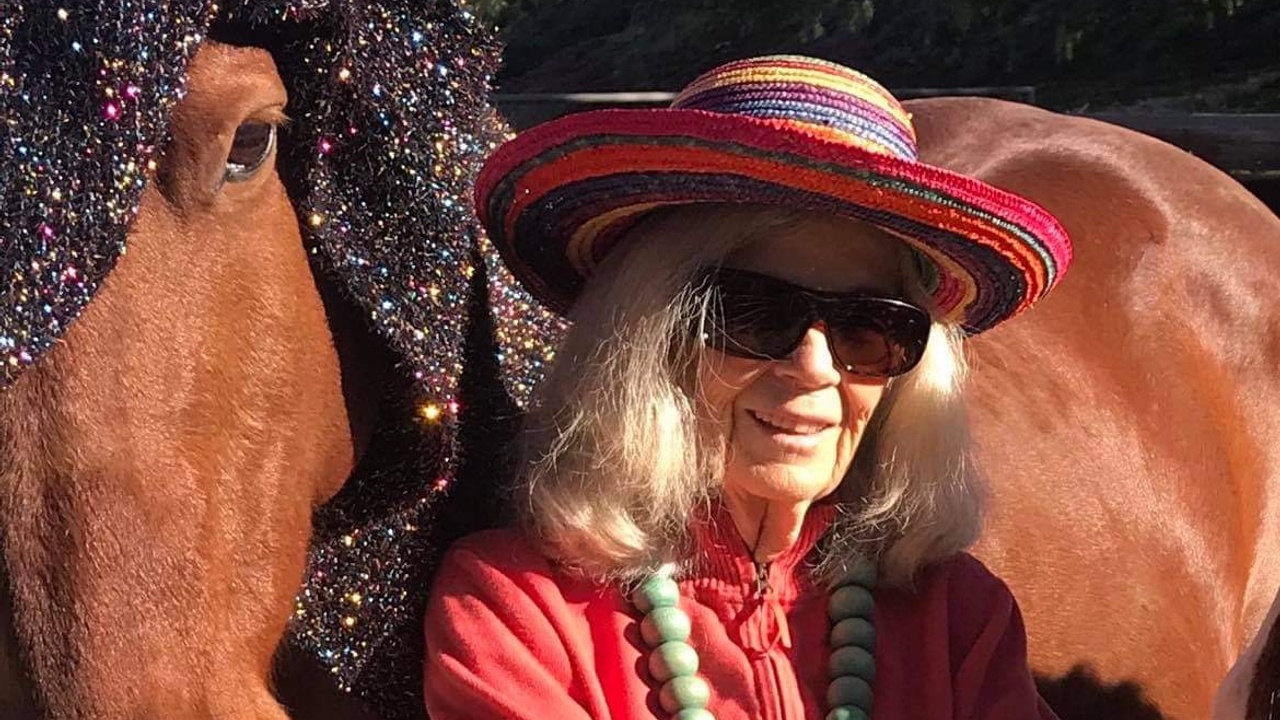
I headed down to the barn to work with our horse Red and when I called him he came running to me. He had never done this before, and at that point, I realized that it was because I had given him many treats in our last session. He had become addicted to intermittently earning treats which he saw as a fun game. When this happened I knew that I had lost my leadership with him because he had an agenda other than connecting to me.
I share this story to help people understand how to handle and fix an out-of-control, over-optimistic horse from his desire for treats. Enthusiasm can sometimes go wrong. Red had a clear agenda when he saw me coming, not because he felt the bond, but he was already headed for “Las Vegas” in his mind. And, I was his ride to get there... Jokingly, he had packed his bags and was headed for the casino looking for his reward, just like someone who is addicted to slots. Slot machines sometimes pay off, and that is what makes the game exciting.
You can build enthusi...
Good Vibrations: Dancing and Sharing Territory at Liberty with Horses

After watching one of the horses on my ranch spend time with a raven that was in his paddock, I noticed a connection developing between the two animals. The raven was preoccupied with looking for something in the stallion’s pen, and the stallion became curious about what the raven was doing. Watching this in nature, as well as when I have Shared Territory with my own horses or watched my students Share Territory™ with their horses, I have found that this curiosity and the “good vibrations” developing between two species are an important part of developing a deep bond.
All animals are curious about anything that preoccupies another being. If you are preoccupied reading a book or journaling, it will draw your horse to you so the horse is the one that starts the relationship. This is important when Sharing Territory with your horse.
If fishermen enjoy waiting until they catch a fish, you can enjoy the time that you share in the company of your horse. You are just fishing for a connecti...
Bonding with Horses at Liberty: Self Realization and Leadership
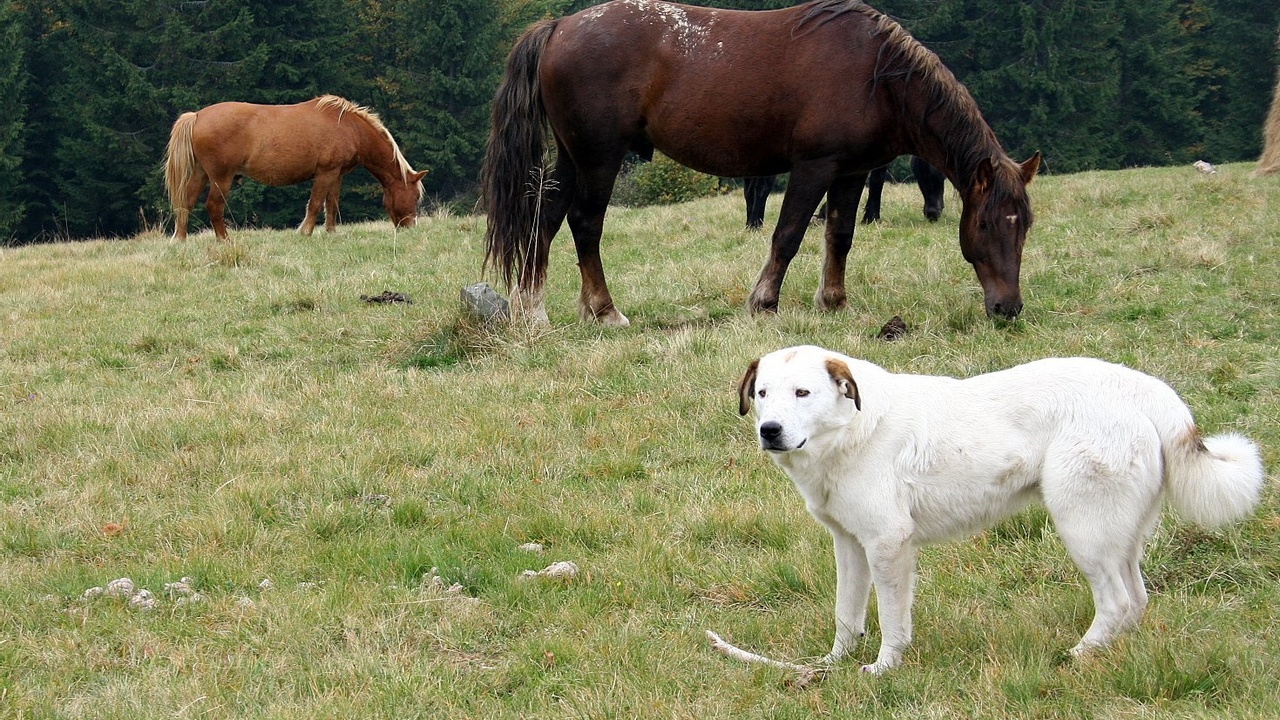
Healing horses and human hearts through bonding is therapeutic for both the horse and the human. Many people would love to have a true partnership with their horse-like they have with their family dog. Some people do, but it is rare.
As a horse trainer and breeder over many years, my interest has always been to help people achieve this kind of relationship. Once you understand the culture of horses this kind of bond is achievable.
To develop a true bond with a horse requires knowledge of their herd behavior and how horses form lasting bonds. Horses are not like other domesticated animals such as dogs and cats; horses are seemingly more difficult to manage until you understand how to approach them. When dogs or cats share a deep bond with a human, they prefer their human companion over another dog or cat. A horse, on the other hand, prefers to be with other horses.
A horse has two opposite instincts; one is to lead, the other is to follow. Luckily for us, horses have a stronger d...
The Genius of Sharing A Bond With Horses

An old-time cowboy feeds and grooms his own horse before he feeds himself. My dad said his horse will always have food but no guarantee that he would. He knows his horse as well as he knows himself. This is a cross-species bond. It is a bond that is reliable. It does not fade. It is a relationship that does not fluctuate when it comes to trust, respect, loyalty, love, dedication, and the need to stay together.
There is no drama that will damage a true bond. If any drama occurs, it is dealt with and forgotten when true love is shared and trusted. It comes in learning how to trust yourself and give life a chance to lead you to your objective. I can tell you that the old cowboy I mentioned above was doing just that. This type of cowboy is in all of us. In fact, this exists in nature in every living being.
This cowboy knew how to slow down and speed up; he knew when to pause and when to act, when to lead and when to follow. He knew this balanced relationship like the back of his hand ...
A Practical Way To Tame Wild Horses Without Force
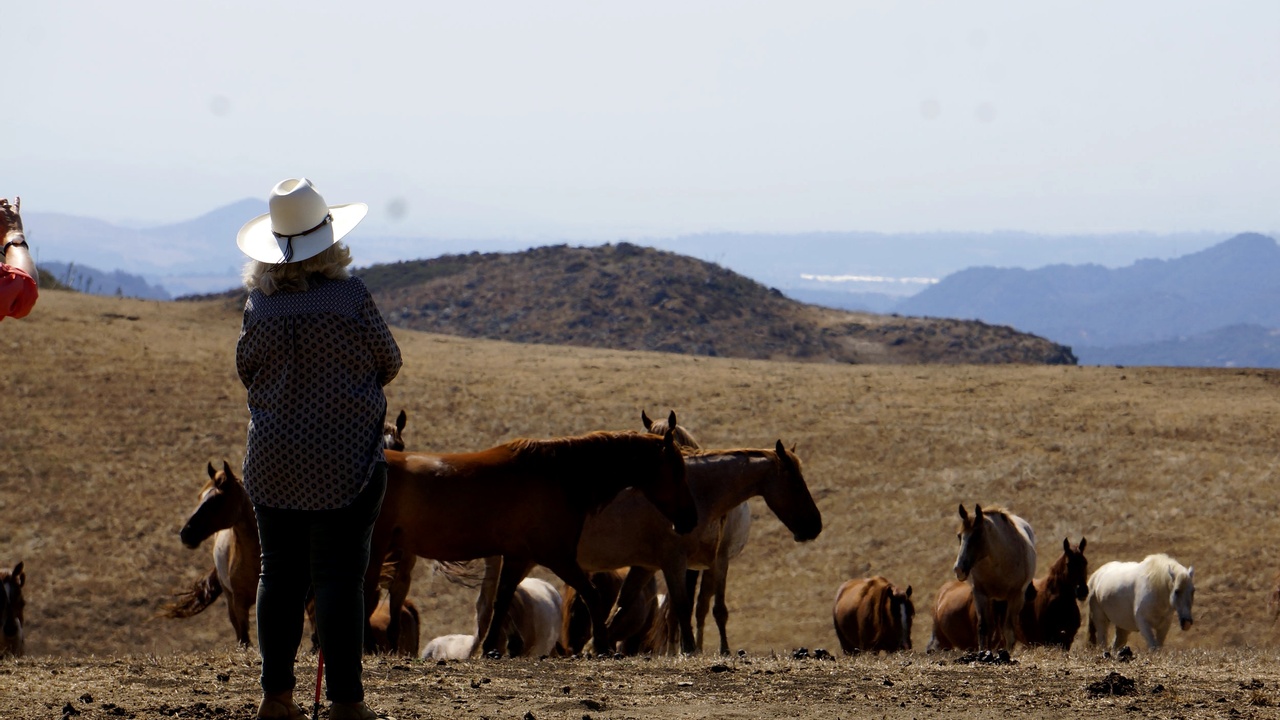
It is fair to say that removing a horse’s fear of humans by using force may not be the answer as a way to save time in the taming of a wild horse. What is missing is trust. Without trust, the horse is left with a hidden suspicion that can erupt at any time, and a person or the horse, or both could wind up with a serious injury. I have been hearing these kinds of stories for years. When horses are frightened, they will hide their fears as they succumb to pressure. They may act tame but their trustworthiness leaves a lot to be desired. They are left traumatized even though they appear bonded with humans.
It is better to develop a connection with a horse in a free open environment so the horse does not feel trapped against its will. When a horse does not feel trapped by ropes, tack, and aggressive round penning they will be more secure in the process of developing a bond. A round pen can be used, but not if a horse is fearful and does not want to be in one. All of these are great tools b...
Mirroring and Matching Energy For Connection

“If You Want to Know What is Wrong With Your Horse, Go Look in the Mirror”
- Murrel Lacey
In every moment, everything in nature is mirroring and matching energy for survival and connection. Both harmonious connections and the need for survival depend on this dance. The herd matches and mirrors each other’s movements to stay together as a single unit for protection. This is also how horses form bonded partnerships in the wild.
Horses also know how to match and mirror the predators around them to stay safe. If a predator does not mind being seen, is relaxed, and not focused on any given thing, the prey animal is relaxed and does not mind being seen for they know they are safe.
Horses Mirror Humans’ Energy
If a person’s energy is accusatory or communicates with a horse when a horse feels threatened by them, or a horse does not respect or trust your leadership, it will bring out fearful, dominant, or even aggressive behaviors.
This lesson is not easy to grasp but it is a ...
Two Minute Loop-de-Loo Exercise To Soften Your Horse, Return Your Leadership And Bring Back A Willing Partnership Under Saddle.
This exercise will help a horse listen to your direction. My focus is on dressage and pleasure horses, although it applies to any trained riding horse that may lose lightness. It is a two-minute exercise that is a simple maneuver that will return a horse to a soft willing connection with you when you ride. Through the practice of this exercise, your horse will respond to soft aids effortlessly, easily, and naturally. It will help you gain back the leadership that you may have lost.
I can use this maneuver to test to see if I have a willing horse. I also use it as a daily warm-up to keep my horses in a soft feel to my rein aids. Practice this maneuver four times on one side of the horse and four on the other side.
Asking for these simple maneuvers from the ground will help a horse respond more easily to directional rein aids, halt, gas pedal, collection aids, and leg yield from the saddle.
The maneuvers start by standing on the left side of a relaxed horse, resting your left han...
